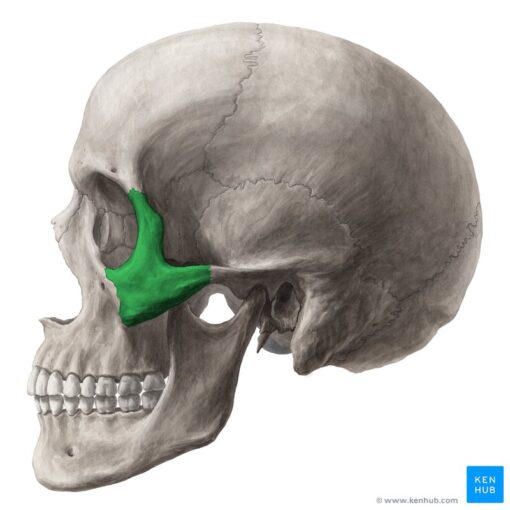Oral health and arthritis may seem like two completely unrelated topics, but did you know that they could actually be linked? Recent studies have shown that there may be a connection between poor oral hygiene and the development of arthritis. This news has startled the medical community and raised concerns among people who suffer from arthritis. In this article, we’ll dive deep into this topic and explore the possible link between oral health and arthritis. We’ll also discuss the best ways to maintain good oral hygiene and keep your joints healthy. Whether you are an arthritis sufferer or just someone who values good oral health, this article is a must-read for anyone looking to protect their overall health and well-being. So, let’s get started and unlock the secrets of the link between oral health and arthritis!
What is Arthritis?
Arthritis is a common condition that affects millions of people worldwide. It is a term used to describe a group of conditions that cause inflammation and pain in the joints. The most common forms of arthritis are osteoarthritis and rheumatoid arthritis. Osteoarthritis occurs when the cartilage that cushions the joints wears down over time, while rheumatoid arthritis is an autoimmune disorder that causes inflammation in the joints.
Arthritis can cause a range of symptoms, including joint pain, stiffness, and swelling. It can also make it difficult to perform daily tasks, such as walking, climbing stairs, or even holding a pen. While there is no cure for arthritis, there are several treatment options available that can help manage the symptoms and slow down the progression of the disease.
There is a growing body of evidence suggesting a link between oral health and arthritis. While the exact mechanisms underlying this relationship are not yet fully understood, research suggests that chronic oral infections and inflammation may play a role in the development or worsening of certain types of arthritis.
One of the most commonly studied forms of arthritis in relation to oral health is rheumatoid arthritis (RA), an autoimmune disease that causes joint pain, stiffness, and swelling. Individuals with RA have been found to have higher rates of periodontal disease and other oral infections compared to those without the condition. Inflammation from oral infections may contribute to the systemic inflammation seen in RA, exacerbating joint symptoms.
What is Oral Health?
Oral health refers to the condition of your teeth, gums, and mouth. Good oral health is essential for maintaining overall health and well-being. Poor oral hygiene can lead to a range of dental problems, including gum disease, tooth decay, and bad breath. It can also have an impact on your overall health, increasing the risk of conditions such as heart disease, diabetes, and stroke.
Maintaining good oral hygiene involves a range of practices, including brushing and flossing regularly, using mouthwash, and visiting the dentist for regular check-ups and cleanings. By taking care of your oral health, you can help prevent a range of dental problems and protect your overall health.

Periodontal disease has also been linked to other forms of arthritis, including osteoarthritis and psoriatic arthritis. In these conditions, inflammation from oral infections may contribute to joint damage and pain. Additionally, some studies have suggested that bacteria involved in periodontal disease may migrate from the mouth to the joints, triggering an inflammatory response and contributing to arthritis.
Maintaining good oral hygiene habits, including regular brushing, flossing, and dental checkups, may help reduce the risk of oral infections and inflammation that can contribute to arthritis. For individuals with arthritis, it is important to work closely with a healthcare provider to manage the condition and reduce the risk of joint damage and other complications.
The Link Between Oral Health and Arthritis
While arthritis and oral health may seem like two unrelated topics, recent studies have shown that there may be a link between the two. Inflammation is a common factor in both conditions, and researchers believe that poor oral hygiene could contribute to the development of arthritis.
One theory is that the bacteria that cause gum disease can enter the bloodstream and trigger inflammation in the joints. This can lead to the development of arthritis or make existing arthritis symptoms worse. Another theory is that the inflammation caused by gum disease could weaken the immune system, making it more susceptible to autoimmune disorders like rheumatoid arthritis.
How Poor Oral Hygiene Can Lead to Arthritis
Poor oral hygiene can lead to a range of dental problems, including gum disease. Gum disease occurs when bacteria build up on the teeth and gums, causing inflammation and infection. If left untreated, gum disease can cause the gums to recede, exposing the roots of the teeth and leading to tooth loss.
Research has shown that the bacteria that cause gum disease can also enter the bloodstream and travel to other parts of the body, including the joints. Once in the joints, these bacteria can trigger inflammation and lead to the development of arthritis.
How to Maintain Good Oral Hygiene to Prevent Arthritis
Maintaining good oral hygiene is essential for preventing gum disease and protecting your overall health. Here are some tips to help you maintain good oral hygiene:
✱ Brush your teeth twice a day with a fluoride toothpaste.
Floss between your teeth at least once a day.
✱ Use mouthwash to kill bacteria and freshen your breath.
Visit the dentist for regular check-ups and cleanings.
✱ Eat a healthy diet that is low in sugar and high in nutrients.
The Importance of Regular Dental Check-Ups for Arthritis
Early detection of dental problems: Regular dental check-ups allow your dentist to detect any dental problems early on, such as cavities, gum disease, or oral cancer. Early detection means that these problems can be treated before they become more serious and potentially more expensive to treat.
Preventive care: During your dental check-up, your dentist will clean your teeth and check for any signs of tooth decay or gum disease. They may also provide fluoride treatments or dental sealants to help prevent future dental problems.
Oral cancer screening: Your dentist will check for any signs of oral cancer during your dental check-up. Early detection of oral cancer can greatly increase the chances of successful treatment.
Education and advice: Your dentist can provide education and advice on how to maintain good oral health, such as proper brushing and flossing techniques, the importance of a healthy diet, and other preventive measures.
Overall health: Regular dental check-ups can also have an impact on your overall health. Research has shown that there is a link between oral health and other health conditions such as heart disease, stroke, and diabetes.
Oral Health and Arthritis Treatment Options
Good oral hygiene: Regular brushing and flossing is important for maintaining good oral health and preventing dental problems such as periodontal disease. It’s recommended to brush twice a day and floss once a day.
Dental check-ups: Regular dental check-ups and cleanings can help detect any dental problems early on and prevent them from getting worse.
Medications: Medications such as nonsteroidal anti-inflammatory drugs (NSAIDs) and disease-modifying antirheumatic drugs (DMARDs) are often used to treat arthritis. These medications can help reduce inflammation and relieve pain.

Physical therapy: Physical therapy can help improve joint flexibility and range of motion, as well as strengthen muscles around the joints.
Surgery: In some cases, surgery may be necessary to repair or replace damaged joints.
Stress reduction: Stress can worsen both oral health and arthritis symptoms. Finding ways to reduce stress, such as through meditation, yoga, or other relaxation techniques, may be helpful.
It’s important to talk to both your dentist and doctor about any oral health or arthritis concerns you may have. Working together, they can help develop a treatment plan that addresses both conditions and improves overall health and quality of life.
Lifestyle Changes to Improve Oral and Joint Health
In addition to maintaining good oral hygiene and seeking treatment for arthritis and gum disease, there are several lifestyle changes you can make to improve your overall health and well-being. Some lifestyle changes that can help improve oral and joint health include:
✱ Eating a healthy diet that is low in sugar and high in nutrients.
Exercising regularly to improve joint flexibility and reduce inflammation.
✱ Getting enough sleep to help your body recover and repair.
Managing stress to reduce inflammation and improve overall health.
✱ Quitting smoking to reduce the risk of gum disease and other health problems.
By making these lifestyle changes, you can help improve your oral and joint health and protect your overall health and well-being.
Oral Health and Arthritis Prevention Tips
- Brush your teeth twice a day with a fluoride toothpaste.
- Floss between your teeth at least once a day.
- Use mouthwash to kill bacteria and freshen your breath.
- Visit the dentist for regular check-ups and cleanings.
- Eat a healthy diet that is low in sugar and high in nutrients.
- Exercise regularly to improve joint flexibility and reduce inflammation.
- Get enough sleep to help your body recover and repair.
- Manage stress to reduce inflammation and improve overall health.
- Quit smoking to reduce the risk of gum disease and other health problems.
Conclusion
In conclusion, there may be a link between poor oral hygiene and the development of arthritis. By maintaining good oral hygiene and seeking treatment for gum disease and arthritis, you can help manage the symptoms and slow down the progression of these conditions. In addition to good oral hygiene and medical treatment, making lifestyle changes can also help improve your overall health and well-being. By eating a healthy diet, exercising regularly, getting enough sleep, managing stress, and quitting smoking, you can help protect your oral and joint health and prevent the development of gum disease and arthritis. So, take care of your oral health for a healthier future, and remember that good oral hygiene is essential for maintaining overall health and well-being.






